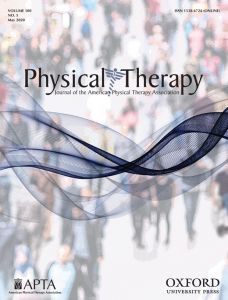Artículos relacionados
Abstract
Several instruments to measure patient satisfaction have been developed to assess satisfaction with physical therapy care. The selection of the most appropriate instrument is very important. The purpose of this study was to identify instruments for assessing satisfaction with physical therapy care and their psychometric properties and to evaluate the methodological quality of studies on psychometric properties.

A systematic search was conducted in ProQuest Medline, SciELO, ProQuest PsycINFO, Theseus, Cochrane Library, and Google Scholar. The articles published from 1990 to 2019, in English and Spanish, were used as limits. This systematic review followed the COnsensus-based Standards for the selection of health Measurement Instruments (COSMIN) and Preferred Reporting Items for Systematic Reviews and Meta-Analyses (PRISMA) standards. The articles were evaluated by 2 independent reviewers using the COSMIN 4-point checklist. Eighteen studies were included.
Nine instruments were found to be specifically designed to assess satisfaction with physical therapy care. The methodological quality of the studies was “fair” for most of the psychometric characteristics analyzed (43 items), with 24 properties scored as “poor,” 5 as “good,” and 3 as “excellent.”
Different instrument characteristics—such as the scope and population with which the instrument will be used, its dimensions, the number of items, and the evidence shown in the evaluation of each psychometric property—should be considered by clinicians and researchers to decide which instrument is the best to measure the construct of patient satisfaction with physical therapy.
 Blog de Fisioterapia Fisioterapia
Blog de Fisioterapia Fisioterapia



